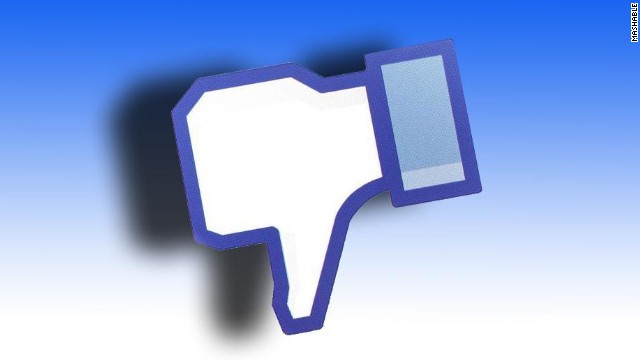How Facebook (briefly) killed the Internet

An error with Facebook's log-in tool killed access to hundreds of sites for about 10 minutes Thursday evening.
STORY HIGHLIGHTS
- Facebook error causes other sites to crash for users
- The problem, with Facebook's log-in tool, last about 10 minutes
- CNN, Mashable, Huffington Post, Hulu, Pinterest among the sites impacted
The reaction online was pretty much what you'd expect, with -- as The Next Web noted -- hashtags like "Facebookmageddon" and "Facebocalypse" common amongst Twitter users.
So what happened,
exactly? There was an issue with the Facebook Connect API that caused
users on sites that use that API to redirect users to a Facebook error
page.
For example, if you were
visiting Mashable and logged into our site using your Facebook account
(and you were also signed into Facebook), you were automatically
redirected to a Facebook error page.
Exiting the page or attempting to re-access the original site would lead to another.
Sites such as The
Huffington Post, Kayak, Hulu, The Daily Dot, Pinterest and hundreds of
others were all impacted. The bug lasted less than 10 minutes.
In a statement, Facebook
told Mashable: "For a short period of time, there was a bug that
redirected people logging in with Facebook from third party sites. The
issue was quickly resolved and Login with Facebook is now working as
usual."
The bug may have been
brief, but it has highlighted just how many important websites use
Facebook Connect for user authentication.
Over the span of just a
few years, Facebook logins have become so pervasive that they are nearly
second nature. It also shows that if Facebook has an issue, it can
affect more than just its site -- it can also impact the hundreds of
thousands (millions?) of sites that integrate with Facebook's APIs.
What's interesting is
that a user didn't even need to be performing the action for the error
-- and hijacking -- to occur. Instead, simply being logged into both
places (and having the accounts linked) was enough to force users off of
a third-party website and onto Facebook's error page.

